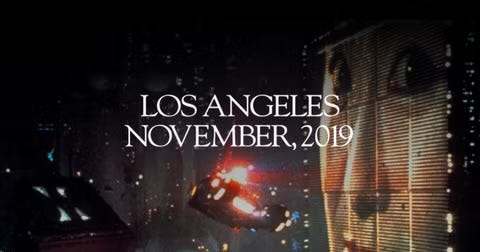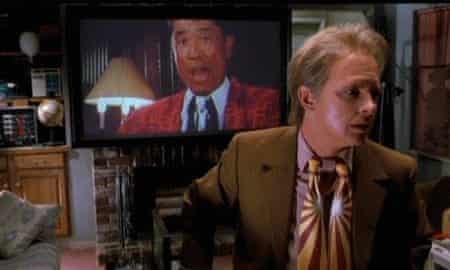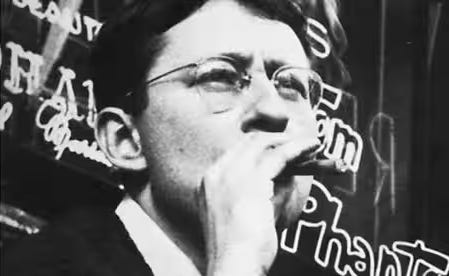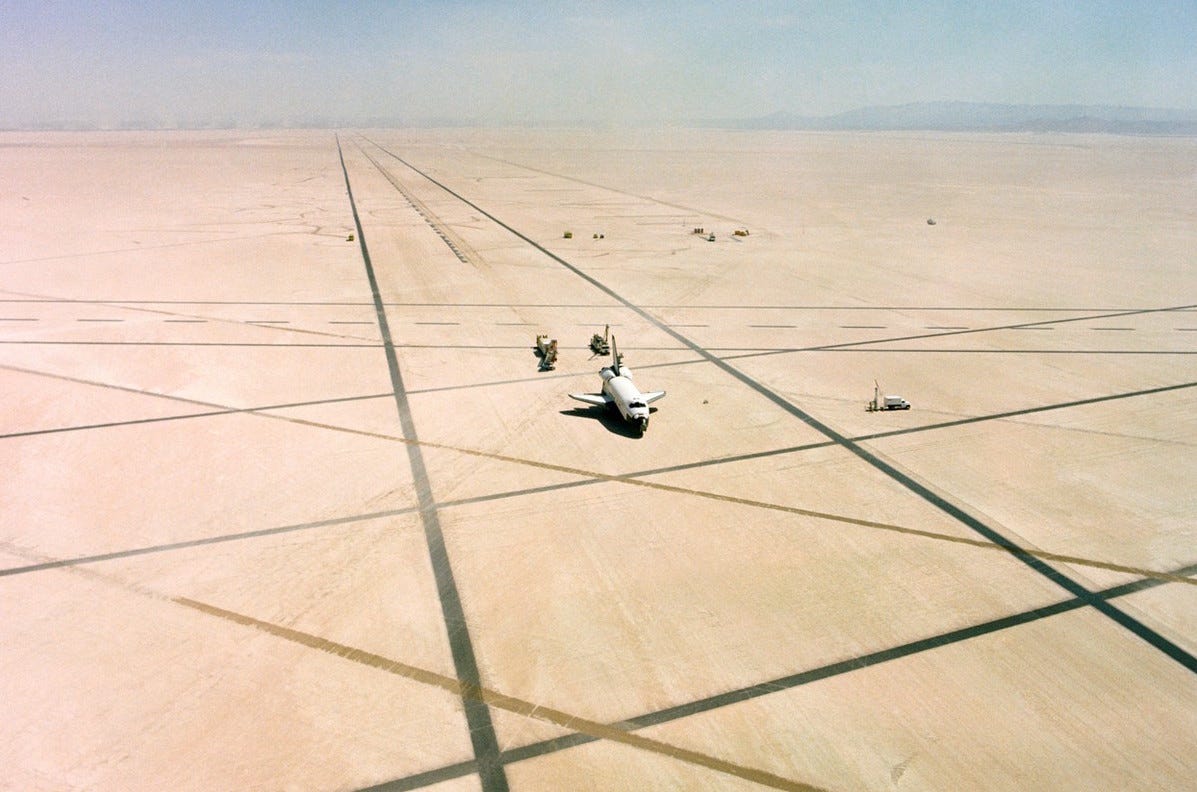#39 The Tyranny of the Timeline
How Baudrillard predicted our all-consuming obsession with a banalised present.
Since Trump’s decisive victory, Elon Musk has been flattering users of X with the repeated message, “You are the media now!” A hyperbolic claim, yet not without resonance. The much-discussed decline in mainstream media’s influence is undoubtedly real: the unfolding of the 2020 election was watched by 57 million people across 18 networks, while in 2024 the viewership was only 42 million. Meanwhile, the power of new media is rapidly growing. That X and podcasting played pivotal roles in the most recent election is denied by no one—witness the talk in Democrat circles of the grave threat posed by Musk, or liberals’ need of “their own Joe Rogan.”

While we online masses haven’t yet taken over all news media’s functions, have we not, in a sense, prepared ourselves for the role by giving ourselves over to its traditional obsessions: party politics and celebrity? We’ve come to think like the media. Not unrelatedly, this past decade has witnessed a dramatic narrowing of the culture. Culture’s come to be concerned, almost exclusively, with everyday politics and celebrity gossip, especially where these overlap. In short, with the demands and distractions of the present. To my mind, this is an accelerated version of the banalising process Jean Baudrillard (1929 - 2007) found at work in all modern societies. Baudrillard's oeuvre, for me, continues to be invaluable to any understanding of the extreme cultural and political phenomena of our time. Of course, conditions have changed greatly since the 2000s, so an imaginative reading is required (though arguably that’s always been true to some extent with Baudrillard’s “theory fictions”). Cultural impoverishment and banalisation, for instance, have gone quite a bit further since his time. We find ourselves condemned to a now-thoroughgoing “presentism”, a culture overwhelmingly obsessed with the present. Novelist J.G. Ballard, an admirer of some of Baudrillard’s work, anticipated this development decades ago in the introduction to his notorious 1973 novel Crash, a book on which Baudrillard would later pen a laudatory essay:
Just as the past itself, in social and psychological terms, became a casualty of Hiroshima and the nuclear age (almost by definition a period where we were all forced to think prospectively), so in its turn the future is ceasing to exist, devoured by the all-voracious present.
Ballard, Arthur C. Clark and the other science fiction authors Baudrillard was a keen reader of were the leading lights of a movement that was much more influential in the twentieth century than it is today. The science fiction genre’s decline into near-irrelevance has been rapid. Denis Villeneuve might be said to be keeping sci-fi on life support.
Blade Runner 2049 and Dune parts 1 and 2 may be thrilling films, but upon reflection, they aren’t really about the future in the same way 2001: A Space Odyssey was when released in 1968. Frank Herbert set his novels so far in the future that the action may as well be taking place in another universe—Dune is more fantasy than predictive science fiction (George Lucas pulled a similar trick with Star Wars, but in the opposite direction). As for Blade Runner, the original film’s 2019 setting has of course slid into our past; this has subtly deterritorialised the entire franchise. Blade Runner is now more alternate universe than believable future. 1989’s Back to the Future Part II, set in 2015, and of course Kubrick’s 2001, are similar cases. Cinematic future has been overtaken by the present.
Harrison Ford’s 1982 appearance on Letterman promoting Blade Runner is fascinating viewing today, a compelling reminder of how important science fiction used to be to the culture. Letterman asks, with apparent earnestness, how things seem to be forty years in the future. Ford at first deadpans that “it’s no musical comedy”, before adopting a serious tone (for once in this interview) to explain how the film tries to imagine one possible future and is “full of wonderful ideas”.
Science fiction did indeed used to supply the culture with some of its most intriguing concepts and poetic metaphors, as Baudrillard knew well. But the genre, once ubiquitous, became a casualty of Ballard’s “all-voracious present”.
The atrophying of historical memory might foster the belief this presentist culture appeared suddenly, was ushered in by this or that technology—for instance, social media. But that would be a simplification; the reorientation towards the present exclusively has been much more gradual. In his 1985 text “Modernity”, originally written for a French encyclopaedia, Baudrillard echoed Ballard but went further, recognising burgeoning presentism to be the exacerbation of something that had always been characteristic of modern life:
Tradition was nourished by continuity and real transcendence. Modernity, having inaugurated rupture and discontinuity, is now closed into a new cycle.
..
Modernity is not a dialectic of history; it is the eventness, the permanent play of the present moment, the universality of news blurbs through the media.
..
[modernity] boils down bit by bit into a culture of daily events.
Of course, technological change has played a role in this, and not a small one. I grew up in the Eighties and Nineties, the late heyday of television. Television culture was ritualistic. The typical viewer would sit down in the same place and at the same time every weekday to watch the box for a few evening hours. TV schedules, too, imparted to the viewing week a ritualised aspect. As a teen I’d look forward to getting my Star Trek: The Next Generation fix from BBC2 every Wednesday at 6PM. These orderly intervals—along, of course, with those of work, school, sport, the press and so on—structured time. Time’s extension, backwards and forwards, along with a sense of relative continuity, were present to mind to a greater degree than today. Past and future were still, just about, living presences in our lives. Time today, in the age of TV-on-demand, social media addiction and the gig economy, is less structured. This loss of structure has, I believe, made us less conscious of past and future. Increasingly we inhabit only the present moment, as opposed to any larger expanse of time.
This de-structuring of time is surely implicated in the cultural narrowing I touched upon earlier. In “Modernity”, Baudrillard makes the connection between a growing focus on the present, with its transient demands and trivia, and the breakdown of the modern project:
[modernity] has lost the ideological drive of reason and progress, and confounds itself more and more with the formal play of change.
Some may take issue with the first part of that assertion. After all, haven’t we had to contend with a new, fanatical progressivism for the past decade or more? And aren’t our societies more obsessed with the advance of technology than ever? Certainly, we have the semblance of progress in the broad sense (social, scientific and technological); I think of it as pseudo-progress. The above quote seems to be saying that the march of reason is not what it once was. Some comments the French thinker made in the late 90s interview book Paroxysm shed further light on this point:
The political, strictly political, alternative has no future. It was a utopia, or a promise, arising out of industrial modernity and a purposive rationality. Neither that purpose nor that promise exists any longer.
To my mind, Baudrillard isn’t saying modernity has succumbed to universal irrationality. He’s well aware there are rational enterprises aplenty in today’s world. It’s that word “purposive” that is, for me, key to what he is saying: the present day’s rational endeavours do not, in the final analysis, add up to true progress. That is, progress towards the more just, more beautiful and truer world dreamed of by the Enlightenment.
Baudrillard and Ballard were far from the only writers to notice how an ever-more insistent present was coming to eclipse past and future, robbing the latter of its promise. That more or less describes the diagnosis of contemporary society Guy Debord made in his 1967 classic The Society of the Spectacle. For Debord, “The spectacle is not a collection of images, but a social relation among people, mediated by images.” Debord viewed the spectacle through a Marxian lense as “no more than the economy developing for itself”. This inhuman order of things rules by fixing human beings’ attention on the unimportant: “the endless series of trivial confrontations is set up again, from competitive sports to elections, mobilizing a sub-ludic interest.”
British writer Mark Fisher, who drew influence from Debord, is another relevant thinker. Fisher, who died in 2017, is best remembered today for 2009’s Capitalist Realism, a book which examined the neoliberal world’s lack of imagination and paucity of vision, deficits made worse by the financial crisis. In this book and elsewhere, Fisher lamented “the slow cancellation of the future”.
Clearly, these attempts to get to grips with how our experience of time is changing share some common features. But the complexity and elusiveness of the phenomenon make a synthesis of these various theories difficult. I often find myself returning to one particular book of Baudrillard’s that I first read twenty years ago, America. This 1986 text (in the original French, an English translation appeared 3 years later), his most atypically optimistic and also one of his most celebrated, is a poetic and visionary hymn to American modernity, delivered in prose that is by turns serene and sardonic. Some twenty-first century readers have been struck by how much Baudrillard’s hologram of Reagan-era America brings to mind their favourite vaporwave LPs and mixtapes, how it feels like a literary equivalent of that genre.
There’s one passage in America that’s always haunted me. It’s one of several to meditate on the American desert, a key obsession and motif in the book:
The natural deserts tell me what I need to know about the deserts of the sign.
..
[the natural deserts] induce in me an exalting vision of the desertification of signs and men. They form the mental frontier where the projects of civilization run into the ground.
That bleak yet poetic phrase, “the desertification of signs and men”, seems to get at something essential. Firstly, it recalls for me Eliot’s quintessential modernist poem The Waste Land, the title of which refers to the cursed and barren land surrounding the Fisher King’s castle in the Grail mythos. Secondly, I value Baudrillard’s resonant phrase for the way it suggests a vast process both enigmatic and ineluctable. The French thinker never reused the expression as far as I know, though he often spoke in similar terms. Only the tone was different—melancholic and often disdainful, in sharp contrast to the serene mood of America. In later books he reported on the ongoing diminishment of culture and the disappearance of forms with cool detachment, coloured with a certain sadness and bitterness.
Taking Baudrillard’s desertification metaphor further—in a modest attempt to explain this unsettling process—we might conceive of those “signs and men” as very much needing the past and the future in order to remain verdant, to avoid becoming desert-like. Life conceived of as irrigated by past and future. I prefer this unfashionably metaphorical way of thinking about the problem, of which the tyranny of the timeline is but one aspect. To be sure, social media has a strong tendency to narrow our vision, to condition us into an even more thoroughgoing presentism than previously. Yet there is the possibility, at least, of using all the various new media in much more imaginative and constructive ways—to stay in the arena while taking a very different approach. I believe the challenge at hand is to transcend that banal “culture of daily events”. A tall order, perhaps. But that may be the only way to open up our bleak, desertified present, to reconnect it with the restorative waters of past and future.
Sources
Baudrillard, Jean, “Modernity”, Canadian Journal of Political and Social Theory / Revue canadienne de theorie politique et sociale, Volume XI, No. 3 (1987) .
Baudrillard, Jean, Paroxysm: Interviews with Philippe Petit, Verso Books (1998).
Baudrillard, Jean, America, Verso Books (1989).
Ballard, J. G., Crash: The Collector’s Edition, HarperCollins Publishers (2017).
Debord, Guy, The Society of the Spectacle, Bread and Circuses Publishing (Translation: Black & Red, 1977).
Fisher, Mark, Capitalist Realism, Zero Books (2009).
Eliot, T. S., The Waste Land (Norton Critical Edition), Norton & Company (2000).










lovely. Thanks for unlocking, and sharing it.